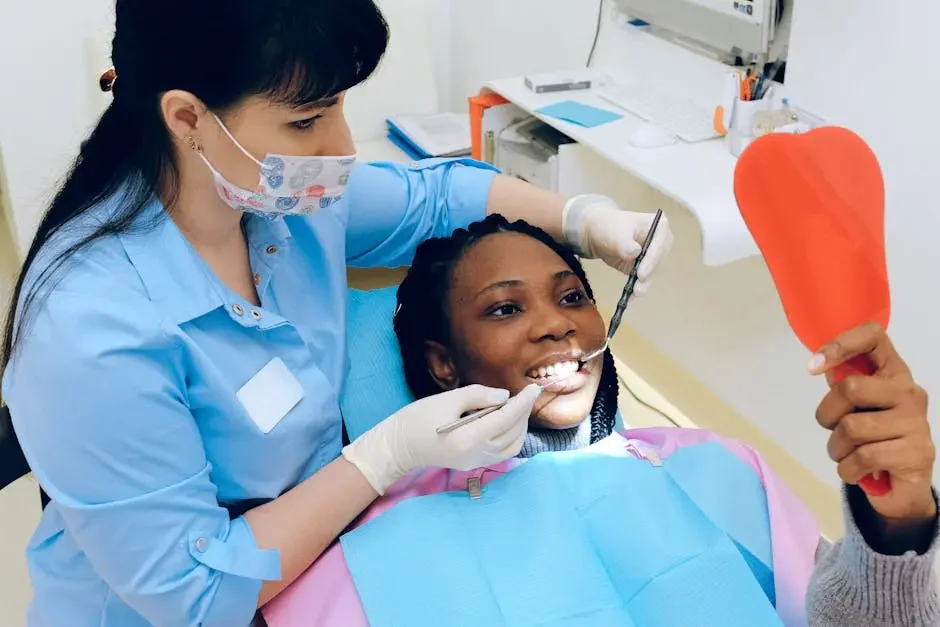9 Common Myths About Emergency Dentistry Busted
When it comes to emergency dentistry, a lot of misconceptions can lead to confusion and unnecessary panic. We're here to set the record straight. In this blog, we’ll debunk some of the most common myths surrounding emergency dental care, empowering you with the knowledge you need for those unexpected moments. Let's get started and clear the air about what really happens in an emergency dental situation.
1. Emergency Dental Visits are Always Expensive
Many people believe that emergency dental visits will break the bank. However, many dental clinics offer payment plans and other options to make care more accessible. In fact, some insurance providers might even cover emergency visits when you need them the most. Understanding this can ease the financial burden that often comes to mind when you think about seeking urgent dental care.
Furthermore, it is essential to realize that putting off treatment can lead to more significant problems down the line. If you ignore symptoms or avoid visiting a dentist due to cost concerns, you may end up facing even higher expenses for more extensive treatments later. So, placing a priority on your dental health is not just smart but also a financial decision.
2. All Dental Emergencies Require Immediate Attention
Not every dental issue is a true emergency. Some problems can wait until regular office hours, and knowing the difference can save you time and stress. For instance, a mild toothache might not require immediate attention, while a knocked-out tooth definitely does. It’s essential to discern the urgency of the situation.
In fact, being able to identify what constitutes an emergency can also empower you. This knowledge allows you to manage your time effectively and decide if you can wait for your regular dentist. Always remember to assess the symptoms critically; if you’re unsure, calling your dentist or the emergency line can provide clarity.
3. You Should Always Avoid Eating After an Emergency
While certain situations require you to avoid food, many emergencies don’t mean you have to skip meals altogether. It depends on your condition and treatment. For example, if you’ve just had a tooth extraction or other substantial dental work, your dentist might advise you to stick to soft foods for a while to promote healing.
Moreover, it's crucial to listen to your body. If you're feeling hungry and your dentist hasn’t advised against eating, then go ahead. However, choose soft, non-irritating foods to support your mouth during recovery. Staying nourished can help keep your strength up, which is important as your body heals.
4. Dental Emergencies Only Involve Pain
Many assume that if there’s no pain, there’s no emergency. However, situations like knocked-out teeth or broken fillings can be emergencies even without discomfort. Ignoring these issues can lead to further complications later on, so it's important to be aware of the signs.
Furthermore, understanding that some emergencies may not be accompanied by pain requires a proactive approach. Educating yourself on what classifies as a dental emergency can help you act swiftly. For instance, have you noticed any bleeding or swelling in your gums? In that case, it’s wise to consult your dentist even if you're not in pain.
5. Home Remedies Are Sufficient for Dental Emergencies
While some home remedies can provide temporary relief, they’re often not enough to resolve a dental emergency effectively. Professional care is usually necessary, as the underlying issues often require specialized treatment that home solutions cannot provide. For example, while rinsing with salt water can help reduce inflammation, it won't fix a fractured tooth.
Moreover, relying solely on home remedies might delay proper treatment, potentially leading to complications that could have been avoided. Seeking immediate professional help not only addresses the pain and discomfort but also safeguards your overall dental health.
6. You Can’t See a Regular Dentist for Emergencies
It's a myth that you must only visit an emergency clinic. Many general dentists can accommodate urgent situations, especially if they know you. If you're a regular patient, your dentist may even set aside time for you in their schedule, making your visit more personalized and comfortable.
Always check with your regular dentist first, as they are familiar with your dental history and can provide tailored care. This might even help alleviate the anxiety of visiting an unfamiliar emergency care facility, thereby making the experience smoother for you.
7. Missing Teeth Will Just Grow Back
Some believe that lost teeth will eventually regrow, which is not true. Once a tooth is lost, it requires professional intervention to address the space left behind. Dental implants, bridges, or other restorative treatments are typically necessary to restore function and aesthetics.
Additionally, missing teeth can lead to other dental issues, like shifting of remaining teeth and bone loss in the jaw. It’s essential to seek timely treatment if you lose a tooth so you can preserve your overall oral health.
8. Brushing Is Enough During a Dental Emergency
While oral hygiene is important, brushing alone does not address the underlying issues present during a dental emergency. Prompt treatment is crucial because toothpaste and a toothbrush can’t repair broken teeth or alleviate severe pain caused by infections.
In fact, neglecting the need for professional help might worsen the situation and lead to more complicated treatments down the road. Don’t rely solely on brushing; always prioritize getting the necessary dental care in an emergency.
9. Emergency Dentistry Is All About Tooth Pain
Finally, emergency dentistry covers a range of scenarios beyond just tooth pain, including trauma to gums and jaw, so it’s vital to assess the situation accurately. Oral health emergencies can manifest as swelling, discomfort while chewing, or even jaw stiffness.
Understanding the full scope of what constitutes an emergency can prepare you better for unexpected situations. It not only helps in reducing anxiety during such scenarios but also ensures that you address the issues efficiently and effectively.
